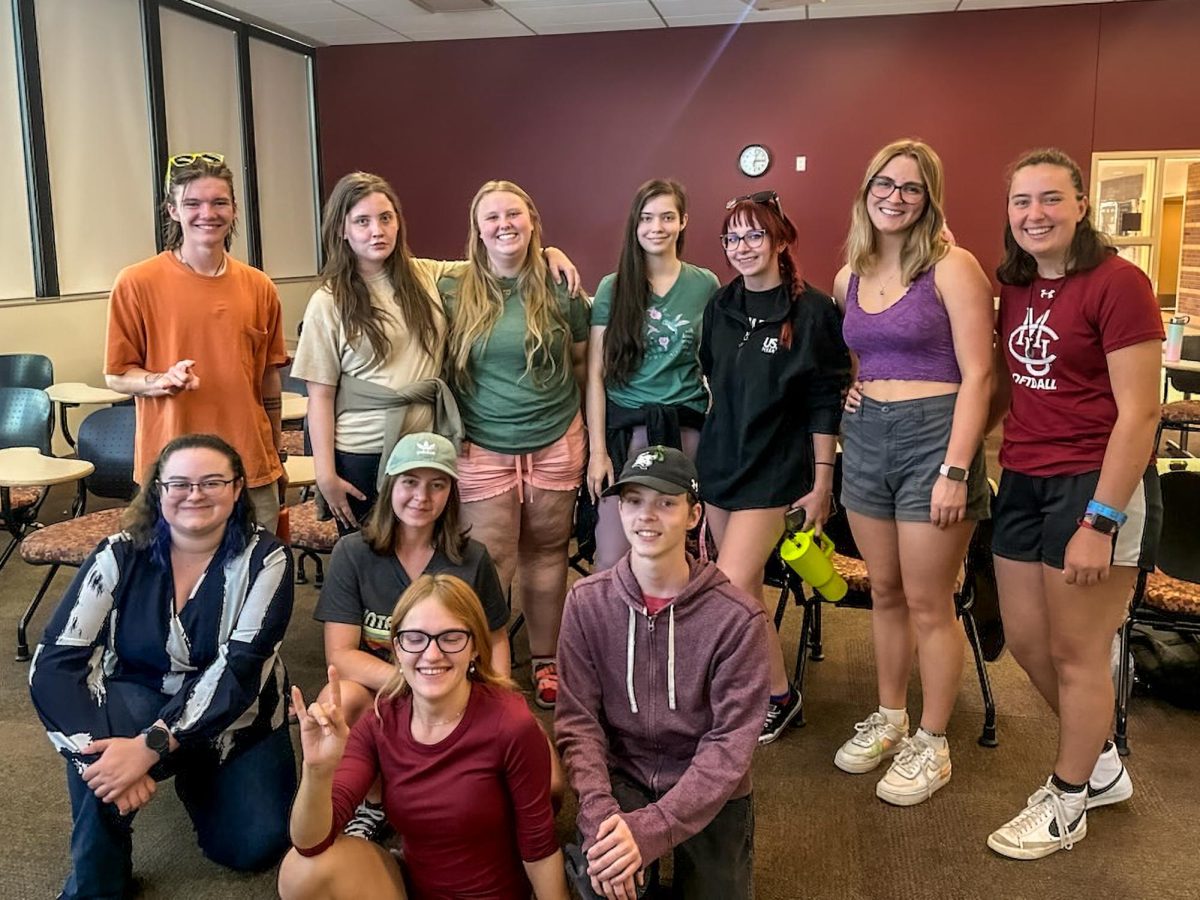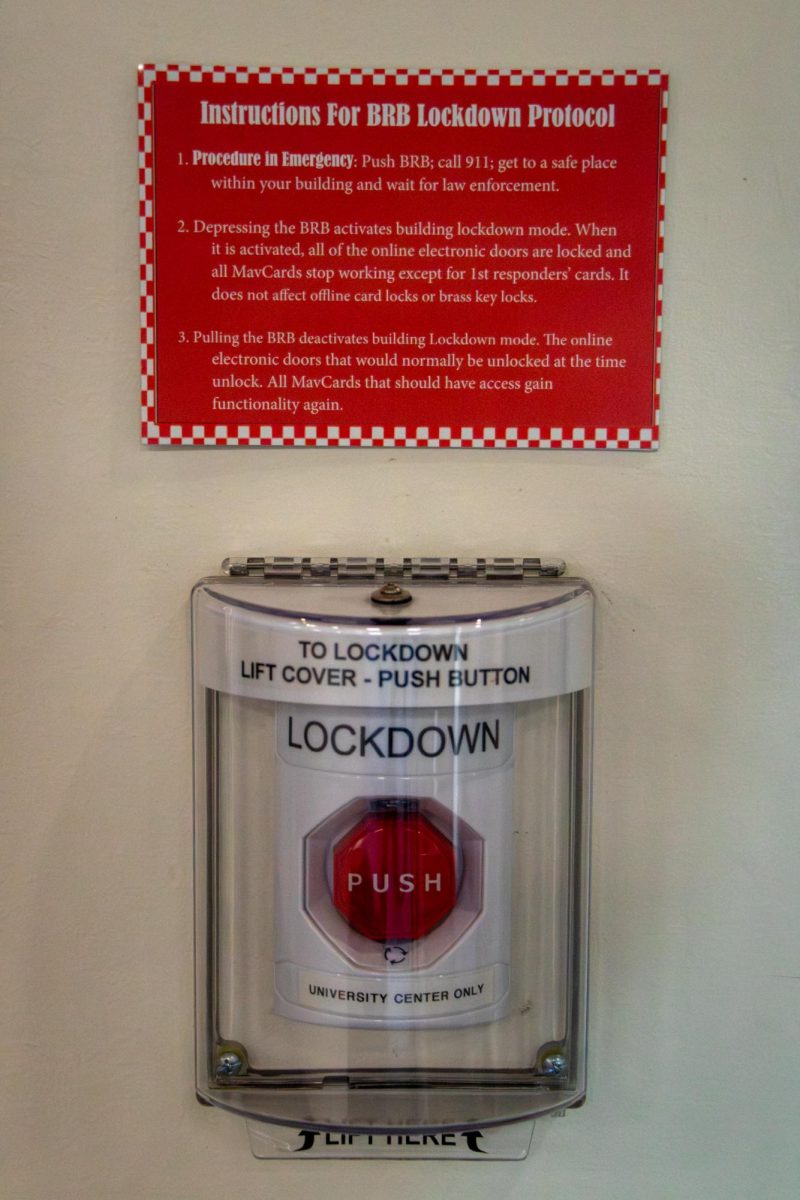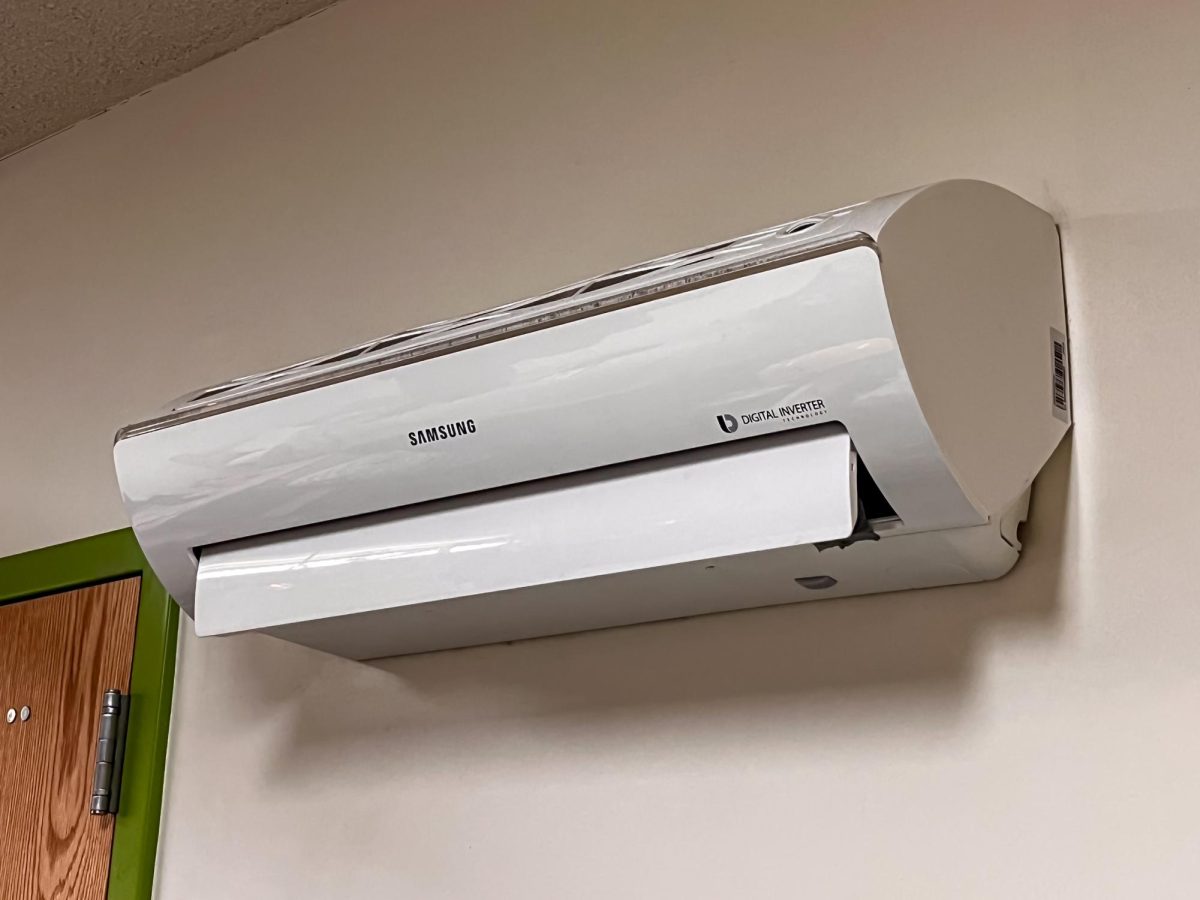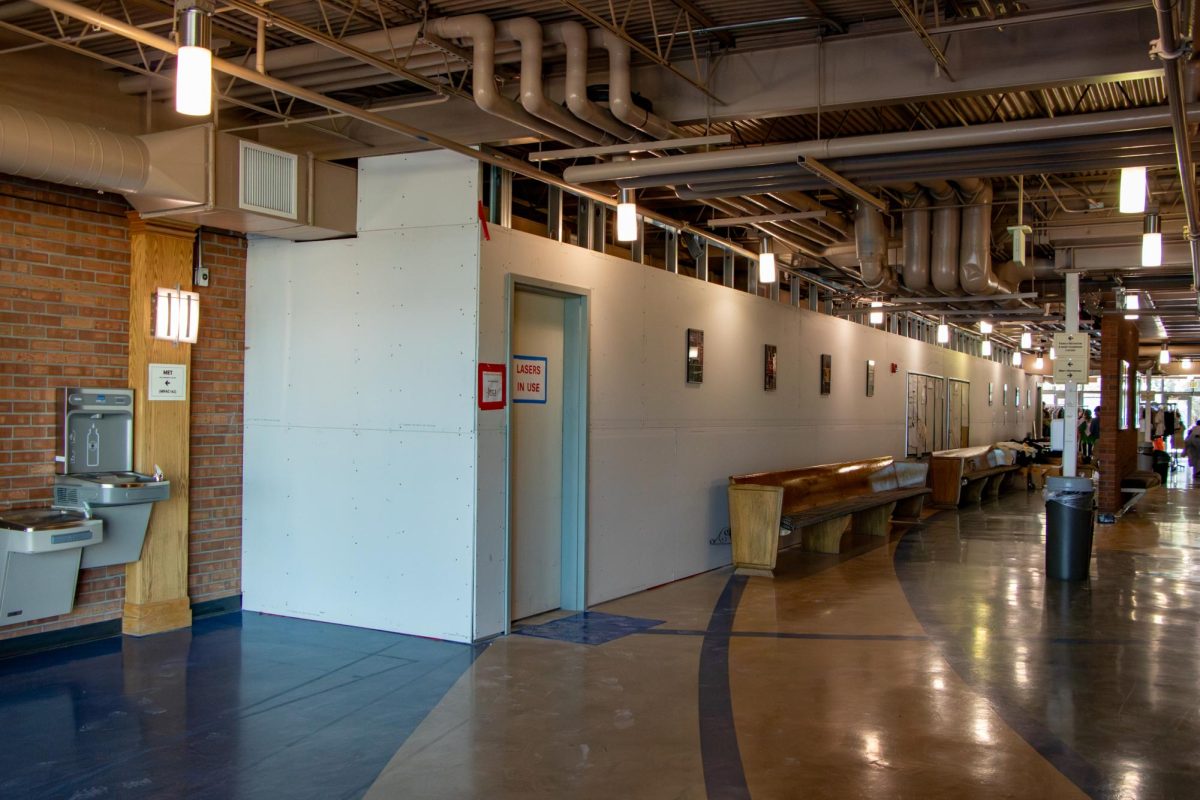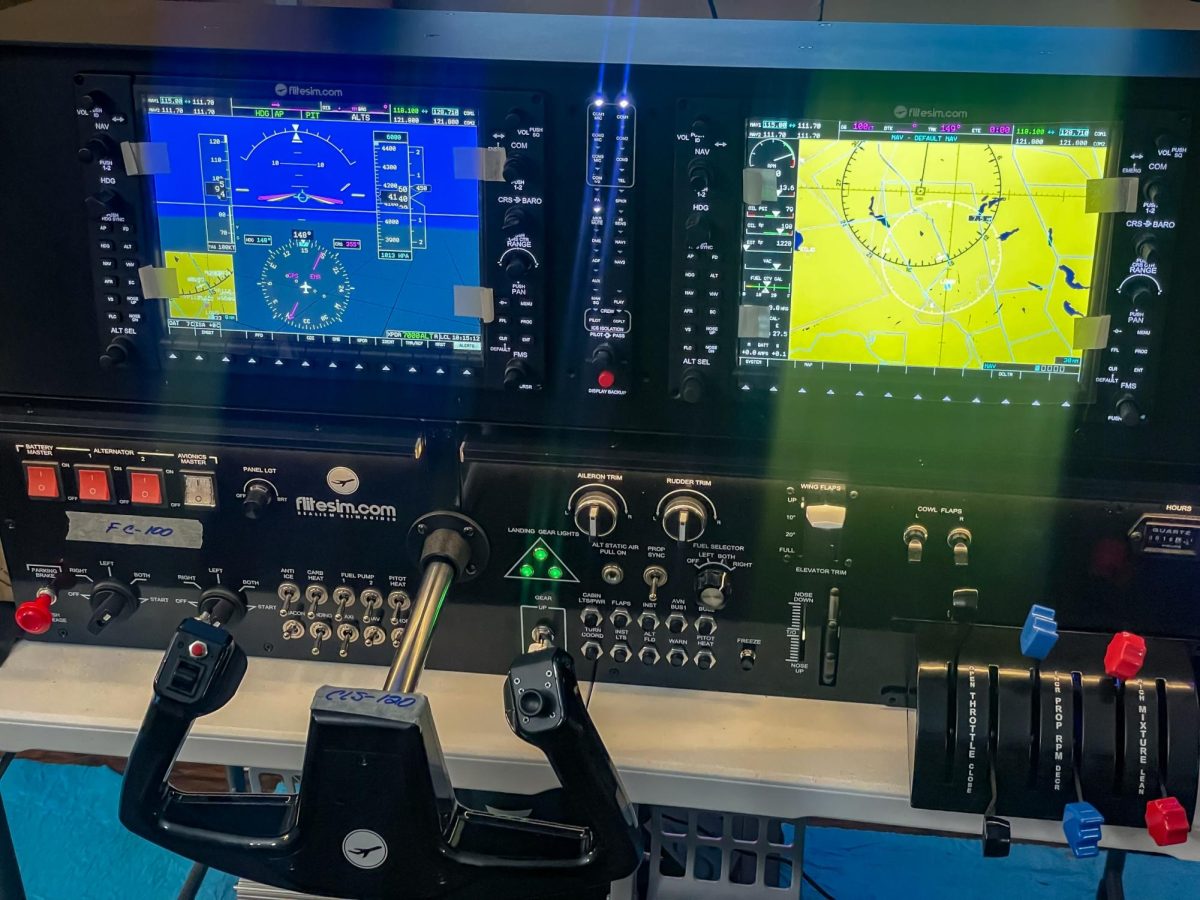The CMU Psychology Club has initiated a new way for students to connect through peer mentorship groups on campus. The program trains CMU peer mentors who can lead conversations informed by lived experience.
According to Mesa County’s 2024 Community Health Needs Assessment (CHNA), there are “worrisome” rates of suicidal ideation, suicidal attempts and deaths by suicide in the community. Lowering this rate by providing mental health support for CMU students is one of the peer mentorship program’s goals.
“Within the Center for Disease Control’s (CDC) suicide prevention outline, connectedness is one of their six pillars,” said the president of Psychology Club, Kylan Bain. “These peer groups are avenues for people to get connected with mental health support they need, and kind of a catching net for individuals that may be struggling.”
Despite the program’s ambitions, the club stressed that it is not a replacement for professional psychological treatment. Rather, the intention is for CMU students to connect over shared experiences and create facilitated peer support groups.
“We’re not trying to diagnose, or deliver any form of prognosis. It’s just, ‘Hey, here’s where you need to go. We know these people, let’s get you in contact,’” said Bain.
Interested students will split their time between what Bain describes as a “rigorous” training process and 500 practicum hours. Students will gain real-life experience during their practicum hours by applying their peer mentorship training directly.
Psychology Club’s membership led the charge by testing this training process over the spring, before opening it to the rest of campus.
“Now into mid-fall, we’re getting people trained, and I myself am going through it,” said Bain. “There are a few other individuals in the club who are training. People who may not have known about it at the beginning of the school year can hopefully be given the opportunity.”
A shift in the major backgrounds of Psychology Club’s membership was another primary motivator behind this project gaining traction.
“We get engineering majors, we get nursing majors, because they’re curious about themselves and the people around them. We needed to create something entirely on its own that facilitates their growth, because that’s what draws people,” said Bain.
In line with this collaborative approach, Bain noted that Psychology Club’s leadership could not ethically claim to represent the lived experiences of these new major groups. He believed these other students could use peer mentorship training as a way to foster connections of their own.
“We’re really trying to curate it towards student want and student desire,” said Bain. “Group design, subject matter, in terms of who the groups facilitates demographically, is all being left open intentionally to catch what the students need. So, you know, we’re filling in where it is needed and not trying to artificially construct that need.”
During the previous academic year, Bain and Vice President of Psychology Club Faith Root brought this concept to the attention of the Social and Behavioral Sciences Department. Head of the Social and Behavioral Sciences Department Erika Jackson has reportedly met with the Psychology Club several times to discuss the program.
“I have Dr. Jackson is in complete support of this initiative,” said Bain. “The whole Social and Behavioral Sciences Department is really excited about this.”
Student Services, Veteran’s Affairs (VA), Mesa County’s Suicide Prevention Coalition, HopeWest, the Mesa County Opoid Response Group and the Student Wellness Center have also offered their support.
“It is a campus-grown thing, something that starts on the grassroots level, so we’re trying to do it through on-campus avenues like Student Services with Dr. Montoya and community partners,” said Bain.
“Foundational bits upward is how we’re trying to reach people, rather than this big organizational structure trying to tell you what to do.”
In addition to spreading community connections, Bain is planning to further develop his role by tracking practicum hours for students. Faculty members of the Social and Behavioral Sciences Department will oversee the approval process.
To fulfill the 500-practicum-hour requirement, Bain and Morrow are working with the Student Wellness Center to find possible applications.
“I mean, the Student Wellness Center has been really bogged with staffing, so our peer mentorship certified officers should hopefully take some of the weight off,” said Morrow. “I am really excited.”
CMU’s director of Advocacy and Health, Anna Lee Walker, is similarly enthusiastic about the future possibilities.
“Yes, the goal would be to utilize trained peer mentors as another support for students,” said Walker. “Peers offer a level of support that is very valuable, yet different from a therapist. This also allows students to graduate not just with a degree, but with a certification and practical experience.”
With many avenues available for certified peer mentors, Psychology Club stands firm that the goal of the peer mentorship program, first and foremost, is to center the student experience.
“Students are really meeting mav-to-mav,” said Bain. “Allowing the groups to be facilitated by students who are given the skills they need to heal and recover in a collective setting is always the goal.”



